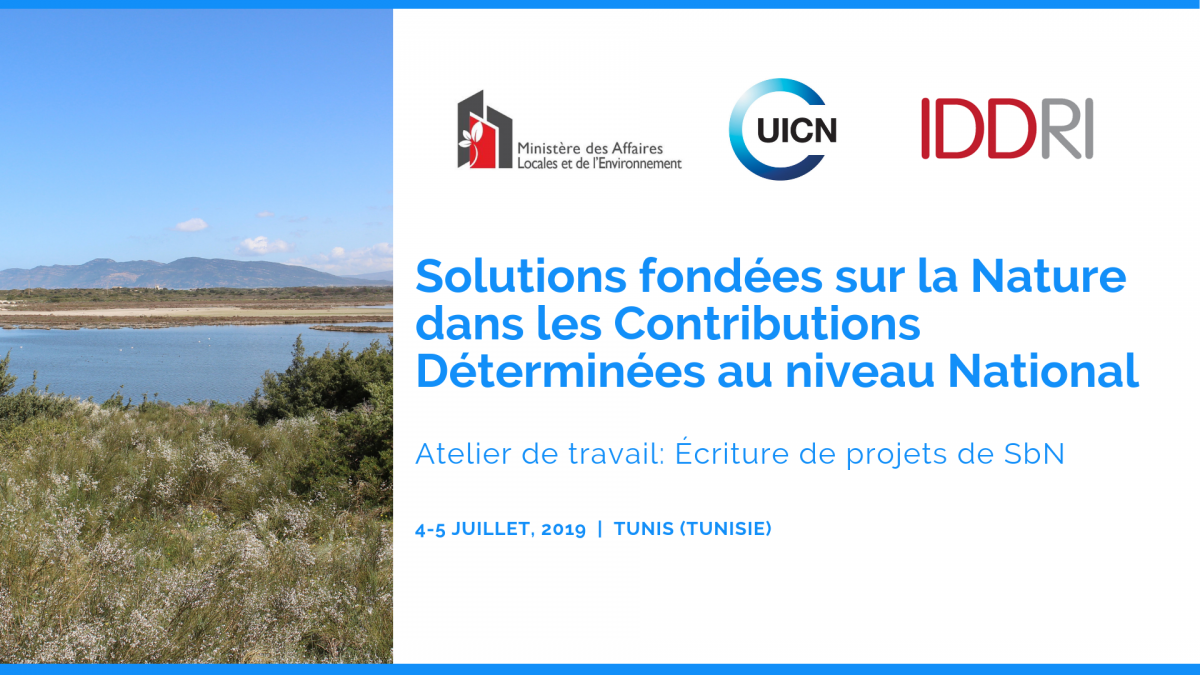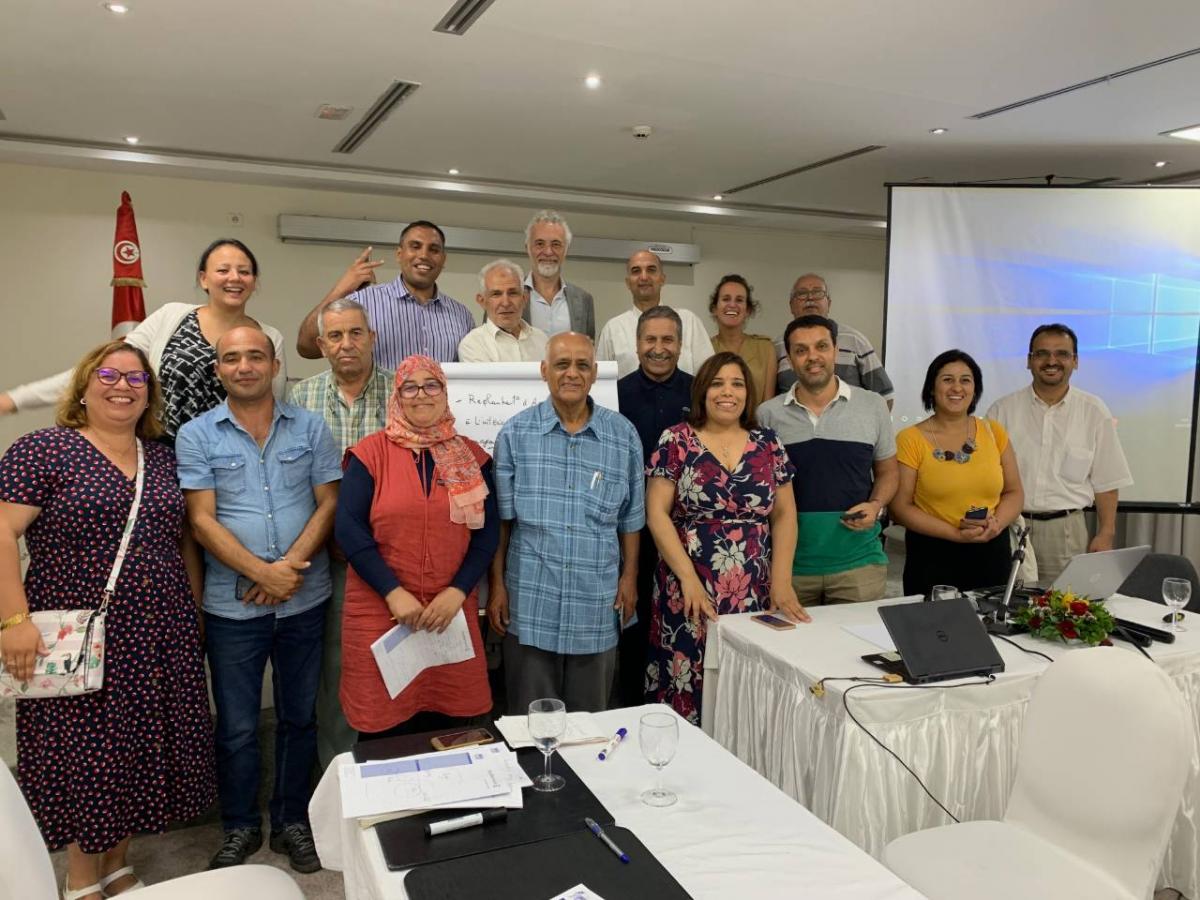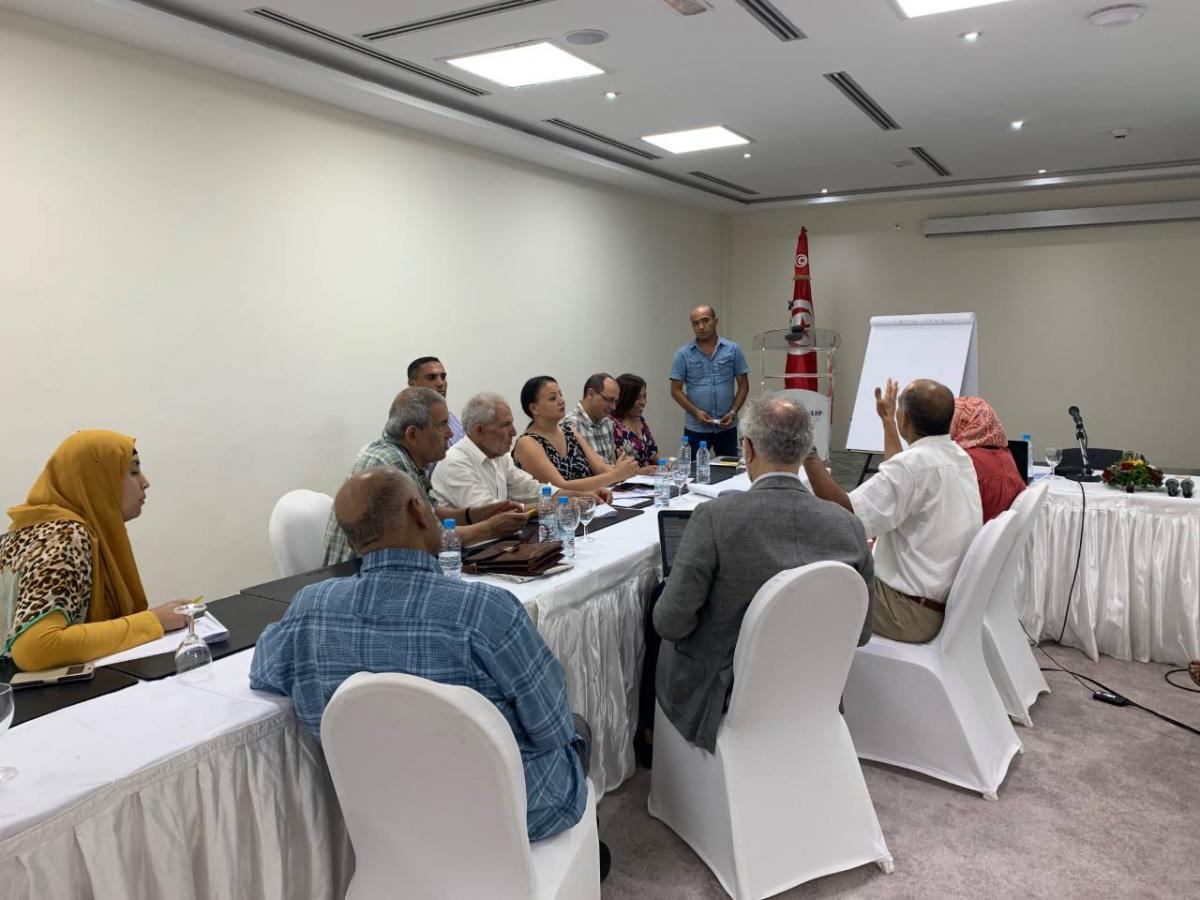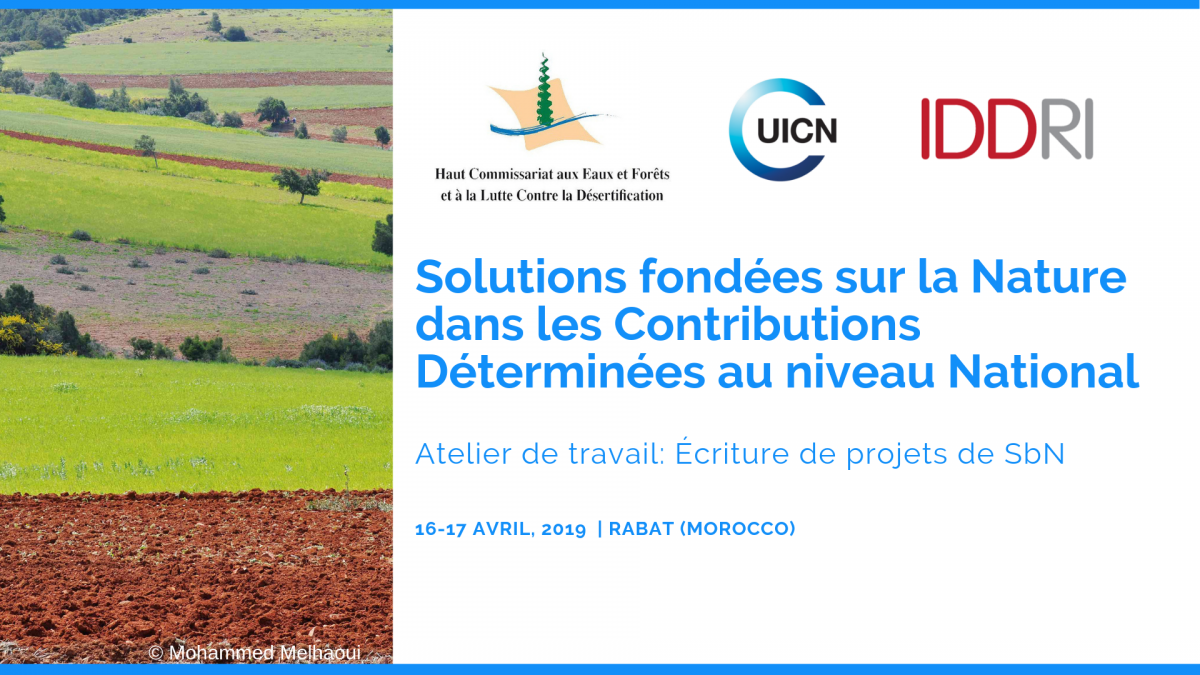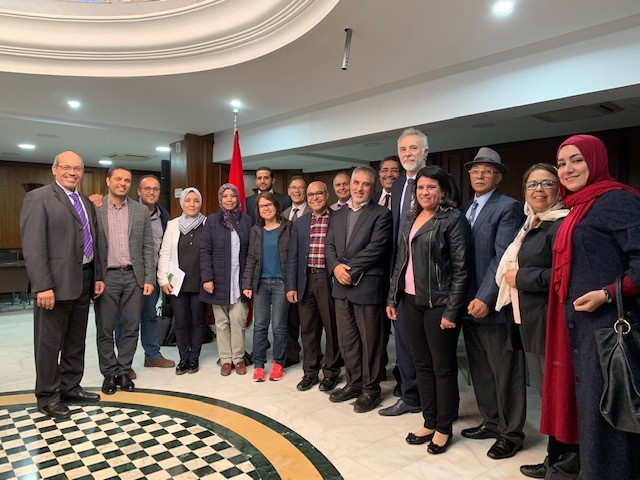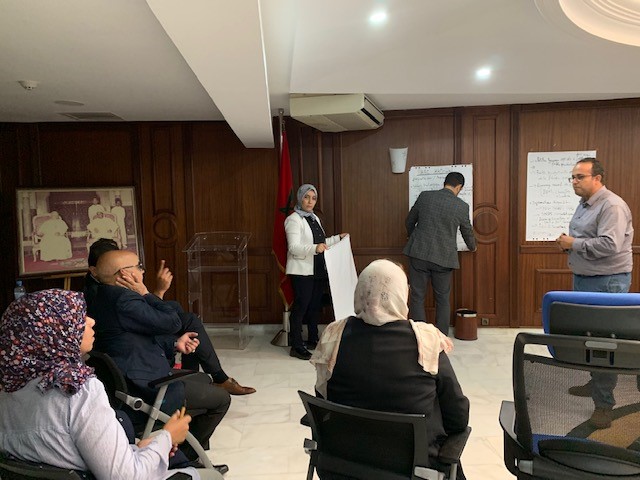Development of project proposals applying 100% Nature-based Solutions in Morocco and Tunisia
Following the work carried out in 2016-2017 and the new workshops held in 2018, IUCN-Med and IDDRI (Institute for Sustainable Development and International Relations in France) have continued in 2019 the work with the governments of Morocco and Tunisia in 2019 to identify and execute "Nature-based Solutions" (SbN) projects following the National Determined Contributions (NDC) of each country showing a greater potential number of synergies between climate objectives (mitigation and adaptation) and biodiversity conservation.
Two workshops were held recently in Rabat and Tunisia with the support of the Office of the High Commissioner for Water and Forests and the Fight against Desertification of Morocco and the Ministry of Local Affairs and Environment of Tunisia, with the participation of government representatives, IUCN members and civil society actors. The goal of these workshops was to consolidate the conceptual notes of two projects that apply 100% Nature-based Solutions, with the aim of including both projects in their respective national programmes of the Green Climate Fund in the next meetings of the National Authority in 2019.
Participants dived deeper into the concept and their own interest in Nature-based Solutions in the context of applying the three Rio conventions (climate change, biodiversity and desertification). The Moroccan group identified 5 projects related to continental regions and various environmental, social and economic contexts, namely:
- Stepparian ecosystems / eastern plateau: regeneration of degraded soils, preservation of grazing activities, reducing pressure and allowing partial reconversion with income-generating activities in pasture areas of the Eastern steppe.
- National Park of the High Eastern Atlas: participation of local communities in the conservation and restoration of the cedar forest.
- Dayet Aoua: Agricultural water savings, raising resources and reuse of rainwater in Dayet Aoua, as a representative pilot project of the Atlas Middle wetland complex.
- “Massa” Hydrographic Sub-basin: Regeneration and replanting of the argan tree, associated with development of renewable energies.
- Khénifiss Region: restoration of desert ecosystems, waste treatment and development of renewable energies.
The proposals of "Steppe Ecosystems / Eastern Plateau" and "National Park of the High Eastern Atlas" were identified as having the greatest potential for Nature-based Solutions in order to meet the different objectives of the Kingdom of Morocco in the field of the three Rio conventions.
In the case of the Tunisian group, four potential projects were identified, three of which referred to continental areas and a fourth to a coastal / marine region:
- Forest restoration and development of sustainable use in the Bargou-Siliana chain;
- Forest agronomy in the Khroumirie-Mogods sector;
- Restoration and valorization of the pseudo-savanna landscapes of Bled Talah;
- Restoration and valorization of coastal and marine ecosystems, the southern Gulf of Gabes, stabilization of dunes, protection of seagrass beds and restoration of the Boughrara lagoon.
At the end of each workshop, it was agreed that the national authorities, supported by IUCN-Med and IDDRI and accompanied by participants from the civil administration and Moroccan and Tunisian society, would initiate the process of preparing both projects, and seek the support of a donor who can finance the preparatory studies, to constitute one or more dossiers of financing of the actions through multilateral funds (especially the Green Climate Fund)
